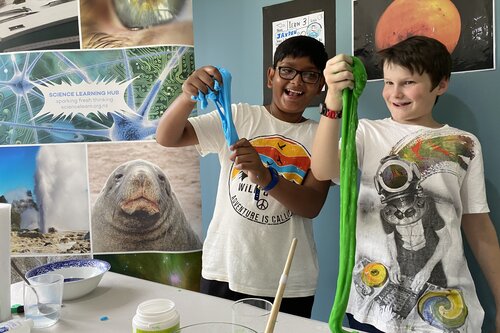Source: University of Waikato
Making science lessons relevant, engaging, and real in a busy and ever-changing world can be a challenge. But for more than 15 years, the Science Learning Hub at the University of Waikato has been helping teachers around the world do just that.
Connecting teachers, students and the science community, the Science Learning Hub has a growing library of close to 10,000 resources based on real-world science. The only hub like it globally, it has become the ‘go-to’ for science educators with more than 35,000 New Zealand users each month and more than 7 million international visitors every year.
Director Dr Cathy Buntting from the University of Waikato says the Hub has become even more popular among educators in the face of the current Covid-19 pandemic:
“When we created the Science Learning Hub more than 15 years ago, we were aiming to increase engagement in science within the traditional classroom, but as remote learning has come to the fore in the Covid environment, it has become clear how crucial it is for teachers to engage students when routines are disrupted.”
Dr Buntting says that their page views increased 30% during New Zealand’s nationwide lockdown in April 2020, with teachers and families seeking new ideas at a challenging time.
“At the same time as we were developing content for Home Learning TV to get science education into New Zealand living rooms, we were supporting teachers looking for new ways to connect their students with science virtually,” says Dr Buntting.
Forward-thinking research by the University of Waikato ensures the Hub is constantly looking for new ways to support educators. This includes the development of the ethics thinking toolkit and resources that support teachers and students to engage in citizen science projects.
“Reflecting a wider focus on supporting indigenous students, we have a range of resources focused on Mātauranga Māori as well as many in te reo Māori, and have a project underway to add resources in Tongan,” says Dr Buntting.
In a recent project, students contributed to an international database investigating the impact of light pollution on humans and animals; other students helped interpret satellite data that are used to identify exoplanets – planets that are beyond our solar system.
“These are great examples of real-life science, and the scientists love that their research projects are serving educational purposes in addition to producing new scientific knowledge,” says Dr Buntting.
The Hub’s small team of educators, education researchers and multimedia experts work closely with science organisations across New Zealand to develop appealing, high-quality content.
Available globally, the Science Learning Hub developed by the University of Waikato is available here: https://www.sciencelearn.org.nz/. The Hub is funded by the Ministry of Business, Innovation and Employment.



